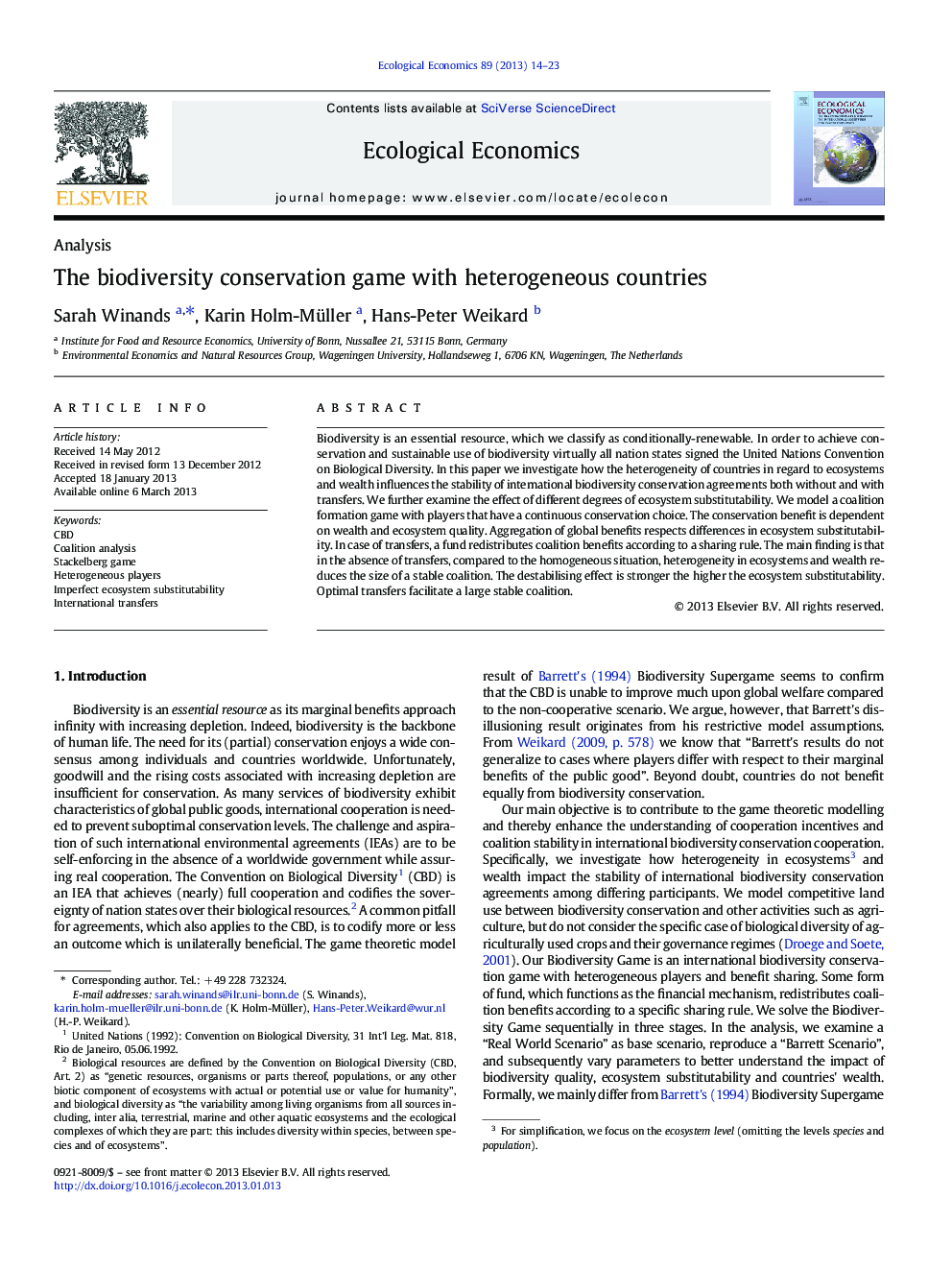| Article ID | Journal | Published Year | Pages | File Type |
|---|---|---|---|---|
| 5050084 | Ecological Economics | 2013 | 10 Pages |
Biodiversity is an essential resource, which we classify as conditionally-renewable. In order to achieve conservation and sustainable use of biodiversity virtually all nation states signed the United Nations Convention on Biological Diversity. In this paper we investigate how the heterogeneity of countries in regard to ecosystems and wealth influences the stability of international biodiversity conservation agreements both without and with transfers. We further examine the effect of different degrees of ecosystem substitutability. We model a coalition formation game with players that have a continuous conservation choice. The conservation benefit is dependent on wealth and ecosystem quality. Aggregation of global benefits respects differences in ecosystem substitutability. In case of transfers, a fund redistributes coalition benefits according to a sharing rule. The main finding is that in the absence of transfers, compared to the homogeneous situation, heterogeneity in ecosystems and wealth reduces the size of a stable coalition. The destabilising effect is stronger the higher the ecosystem substitutability. Optimal transfers facilitate a large stable coalition.
⺠We model cooperation of heterogeneous players with continuous conservation choices. ⺠We examine the effect of different degrees of ecosystem substitutability. ⺠Heterogeneity in ecosystems and wealth reduces the size of a stable coalition. ⺠The destabilising effect is stronger the higher the ecosystem substitutability. ⺠Optimal transfers facilitate a large stable coalition.
